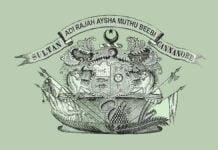Vallathol Narayana Menon’s long poem in five cantos, Mary Magdalene, is considered one of the classics of Malayalam literature. The poet uses powerful imagery in this poem to describe the encounter between Mary Magdalene and Jesus in Simon’s house. Translated by Prof B Hridayakumari, the poem is unique, and for the poet, it was indeed a challenging proposition to write on a Christian theme while his familiar world was Hindu scriptures and myths. Vallathol did an unusual feat in this poem because though it was all about Mary Magdalene, the woman who wept at the feet of Jesus and washed his feet with her tears, at the end of it the whole poem turned out to be an epic portrayal of Jesus, the God who declared loudly and clearly that he had not come to condemn the sinners but to love them.
Mary Magdalene reimagines the biblical figure through a powerful emotional and philosophical lens. While traditional Christian narratives often marginalise her as a sinner or reduce her identity to one event in her past, Vallathol restores her dignity, autonomy, and spiritual depth. The poem highlights Mary’s journey from social condemnation to becoming the most devoted follower of Christ. Vallathol transforms Mary into a figure of immense courage and spiritual enlightenment, establishing that redemption belongs not only to the pure but to those who rise from the depths of despair into divine grace. Through evocative language, he restores dignity and reverence to her name, celebrating her as the first bearer of the message of hope. The poem becomes a universal symbol of redemption, emphasising how true spirituality rises above social judgement, and how love rooted in faith transcends death and suffering.
Summary
Mary Magdalene is Vallathol’s bold poetic recreation of a Christian spiritual narrative through the imaginative lens of Indian literary and mythic traditions. Though deeply rooted in Hindu symbolism and aesthetics, Vallathol powerfully reinterprets the Biblical account of Mary Magdalene’s redemption by Christ. Across five cantos, the poem narrates her evolution from a fallen courtesan to a redeemed devotee, highlighting her profound inner transformation.
Canto I
Christ arrives as a guest in the wealthy house of Simon, where luxurious surroundings are described through delicate imagery. Despite His divine presence, Simon fails to show proper respect — a subtle critique of spiritual blindness disguised by status and wealth. Christ, humble and serene, is compared to Krishna in Vrindavan, showing Vallathol’s syncretic imagination.
Canto II
Mary Magdalene enters, portrayed as a celestial beauty — luminous, pure in desire, yet misunderstood by society. The poet builds an aura around her: she is guided not by lust but by a higher spiritual yearning. Her approach towards Christ is framed as the universal soul moving towards the divine.
Canto III
Her past unfolds — born into poverty, exploited by men, and reduced to an object of desire, her beauty becomes both a curse and a commodity. Vallathol empathetically examines the socio-economic violence against women. He argues that society creates sinners and then ruthlessly condemns them. Her downfall is not a moral failure alone but a social tragedy.
Canto IV
Magdalene’s awakening comes through Christ’s teachings — the simple command to “guard your purity” pierces her conscience. Vallathol employs metaphorical imagery of hellish luxury to depict her guilt and inner turmoil. Her tears mark a spiritual rebirth; repentance is portrayed as a cleansing, purifying force. The canto demonstrates the human ability to seek transformation beyond social stigma.
Canto V
In the climactic scene, Mary Magdalene washes Christ’s feet with tears and dries them with her hair — an act of humility, devotion, and love. Her offering of rare perfume becomes a symbolic surrender. Christ recognises her faith and publicly affirms her redemption. She rises from shame to sanctity, while Simon’s silent arrogance is challenged by divine compassion.
The poem becomes not merely the story of a sinner but a celebration of Christ—the embodiment of love, mercy, and liberation.
Analysis
A “Fallen Star”
The poem introduces Mary Magdalene as a woman of breathtaking beauty, so exquisite that even the stars pause to gaze at her. Yet, the poet describes her as a “fallen star,” suggesting that a life of sin tarnished her beauty, and she grew up in the “barren dry hut of poverty”. Her character and virtue were eventually corrupted by circumstance.
The Path to Jesus
The poem details Mary’s journey to the house of the Pharisee Simon, where Jesus is dining. This is the pivotal moment where she is overcome by remorse for her past.
Anointing Jesus’s Feet
Overcome with repentance, Mary washes Jesus’s feet with her tears and anoints them with expensive perfume. Her actions are depicted as a powerful and paradoxical act of both humility and purification, as she uses her hair to dry his feet.
Compassionate Forgiveness
While Simon and the other guests see her as a hardened sinner, Jesus defends her and lovingly forgives her. He acknowledges the depth of her love and gratitude, asserting that she, who has been forgiven much, loves much in return. Vallathol even draws a parallel between Jesus’s divine message and the enchanting music of Lord Krishna’s flute, likening Jesus’s teachings to a melody that brings about Mary’s profound repentance.
Transformation and Hope
Mary’s encounter with Jesus leads to her spiritual awakening. She is completely transformed by his compassion and love, abandoning her old life to follow him as one of his most devoted disciples. The poem ultimately celebrates her story as one of redemption, showcasing the immense power of divine mercy to transform even the most lost souls.
Vallathol’s Humanistic Vision
Mary Magdalene powerfully reflects Vallathol’s broad humanistic vision, grounded in compassion, dignity, and spiritual equality. In his portrayal of Mary Magdalene, Vallathol challenges moral judgement and social hypocrisy by showing that sinners are often victims of circumstance rather than innately corrupt. He criticises a society that willingly exploits a woman for her beauty but ruthlessly ostracises her for the very same reason. For Vallathol, redemption is a right available to every human soul, and divine love is a force that lifts an individual above the limitations imposed by social prejudice. Christ appears not as a god of punishment but as the ultimate symbol of love, who embraces the fallen without condemnation. Vallathol’s humanism transcends religious boundaries as he uses Indian imagery, metaphors, and cultural parallels to interpret a Christian narrative, thereby affirming the universality of moral and spiritual values. The poem becomes a celebration of faith in humanity — the belief that transformation is possible and that compassion is the highest virtue that elevates humanity. Through Mary Magdalene’s story, Vallathol upholds the message that true civilisation rests not on authority or wealth but on empathy, forgiveness and the acceptance of every human life’s inherent worth.
Major Strengths and Thematic Insights
Redemption over Judgement
Christ’s ideology — “I came not to condemn but to love” — anchors the poem’s moral vision. Mary Magdalene’s transformation reveals Vallathol’s humanistic belief that compassion heals more deeply than punishment.
Feminist Undercurrents
The poem critiques patriarchal exploitation: men who degrade Mary are never punished, yet she alone bears stigma. Vallathol champions her dignity by giving emotional depth to a figure often oversimplified in Biblical discourse.
Psychological and Spiritual Realism
Mary’s inner struggle is described with vivid intensity — guilt, fear, yearning, and awakening. Her tears serve as both confession and liberation.
Feminist Reinterpretation
In Mary Magdalene, Vallathol offers a feminist reinterpretation of a Biblical figure who has historically been silenced, stigmatised, and reduced to a symbol of moral failure. By foregrounding her inner conflict, trauma, and yearning for spiritual dignity, Vallathol challenges the misogynistic tradition that condemns women for transgressions while exempting men who exploit them. Mary’s beauty, initially a curse, becomes a source of divine grace when she asserts her agency through repentance and devotion. The poem critiques patriarchal social structures that equate feminine desire with sin and value a woman only for her physical attributes. Vallathol reframes Mary not as a fallen temptress but as a seeker of truth—an embodiment of resilience and self-reclamation. Thematically, the poem explores guilt, social alienation, rebirth and the quest for acceptance, demonstrating that women are more than their pasts or the labels society imposes upon them. Christ’s embrace of Mary symbolically restores her humanity, affirming that spiritual worth is independent of gender or reputation. In doing so, Vallathol’s narrative becomes a powerful feminist act: reclaiming Mary Magdalene’s identity from shame to sanctity, and defending a woman’s right to grace, dignity, and transformation.
Religious Universalism
Vallathol accomplishes a daring cross-cultural synthesis by telling a Christian narrative through Indian aesthetics. Christ, depicted through imagery drawn from both Christian and Hindu traditions, becomes a universal figure of divinity — a healer who transcends dogma and embraces the suffering soul with unconditional love. The poet reframes Christ as a spiritual force beyond religious boundaries — a reformer, yogi, and divine guide. Vallathol’s syncretic spirituality breaks the boundaries separating religions, cultures, and civilisations: Christ is likened to Krishna, His words to the Gita, His compassion to the cosmic law of grace. References to Krishna, the Kalindi River, Shiva’s tapas, Kubja, and Hindu imagery blur the artificial boundaries between religious traditions. Christ becomes an avataric figure comparable to Vishnu or Krishna — a universal saviour. The poem encourages interfaith empathy and promotes unity over division.
Symbolism and Psychology
Vallathol employs rich symbolic imagery and psychological depth to present a holistic vision of human transformation in Mary Magdalene. Darkness and moonlight symbolise the perpetual conflict between sin and grace, while tears, perfume, and flowing hair function as intimate metaphors of confession, surrender, and emotional purification. Mary’s journey is explored psychologically as a progression from trauma, guilt, and self-loathing to hope, acceptance, and inner peace — demonstrating Vallathol’s profound understanding of the human mind. Her anguish is not portrayed as the consequence of innate wickedness but as the burden of exploitation and social judgement, revealing the poet’s empathy towards victims of moral prejudice. Through symbolism and spiritual universalism, the poem conveys that redemption is a universal human longing and that the path from darkness to light is open to every heart that dares to seek it.
Visual, Musical, and Cultural Imagery
Vallathol’s Mary Magdalene is distinguished by its vivid visual and musical imagery that immerses the reader in both the splendour of Galilee and the emotional drama of Mary’s redemption. The poem unfolds like a cinematic tableau: moonlit nights, silver lamps, honey-scented breezes, flowing silk, and shimmering waters create a sensuous landscape where spirituality and beauty coexist. Musical references — the cuckoo song, the flute-like sweetness of Christ’s teachings, and the rhythm of nature — enrich the narrative with lyrical soundscapes that symbolise harmony and divine presence. Vallathol’s incorporation of Indian classical imagery, such as Krishna on the banks of Kalindi, Kubja anointing Krishna, and the comparison of Christ’s hair to a cluster of bees around a lotus, seamlessly blends Biblical history with Hindu mythic aesthetics. This cultural syncretism transforms the poem into a cross-civilisational spiritual epic, reflecting the universality of love and redemption. By merging the sensory with the sacred, Vallathol elevates Mary Magdalene’s emotional journey into a richly layered cultural experience, suggesting that divine compassion transcends geographical and religious boundaries.
Devotion as Spiritual Autonomy
Mary’s relationship with Christ is depicted as one of purity, emotional loyalty, and inner strength. The poem reveals:
- Love as liberation
- Faith as empowerment
- Repentance as transformation
Thus, salvation in Vallathol’s perspective is not a divine gift to the “pure” but to those who strive towards light.
Vallathol Narayana Menon’s Mary Magdalene is not merely a retelling of a biblical episode but a profound poetic reclamation of a woman whose spiritual significance has long been diminished. Vallathol bestows upon her the dignity of a witness, the authority of a messenger, and the sanctity of a believer whose faith withstands death itself. Hridayakumari’s translation preserves the lyrical flow and retains the ornamental grandeur of Vallathol’s Malayalam diction.
Mary Magdalene stands as a pioneering work in Malayalam literature — a bridge between Christianity and Indian poetic heritage. It humanises a Biblical character often defined by moral labels and elevates her as a symbol of:
- Repentance
- Faith
- Human dignity
- Transformative love
The poem stands as a tribute to redemption, courage, and the transformative power of devotion. By restoring Mary Magdalene to her rightful place in sacred memory, Vallathol has created a work that is spiritually ennobling, intellectually challenging, and artistically timeless.































Mary Magdalene by Vallathol Narayana Menon
I.
A spring night came
Bearing the moon-platter in her hand
A luminous balm she spread on Neine
And the city shone like a necklace of pearls
On the lovely land of Galilee
In Simon’s stately house.
In a beauteous and spacious hall
Lamps, swinging on silver chains
And fed with oils scented sweet,
Shone in brilliant array,
Flooding the hall with light.
Even the dazzling lamps looked pale
As a radiant figure, a man, stepped in.
Oh, householder, blessed indeed are you.
Supreme over all is your guest,
But what grave omission is this?
Your knees do not bend to him.
Haughty pride of paltry wealth,
Will not your vain head bend
Even to kiss that sovereign hand
That lavishes wealth on this world?
Those feet which are to be washed
With the attar of damask roses
Received not even a drop of water
In the house of the wealthy host.
It matters not;
Those feet themselves are a holy fount.
“Food is ready,”
Was all that Simon said
To welcome his worthy guest.
Jesus put his sandals aside;
His feet were like golden flowers
Bared of their leafy veil.
Slowly he stepped into the princely hall
Sumptuous of luxuries.
With his friends he took his seat
On a silken carpet bright with glowing hues;
He looked like Krishna seated with his friends
On the flower-strewn turf on Kalindi’s shore.
With his legs bent back
And left hand planted on the rug,
Inclining slightly to the left,
He sat for supper,
He, the Lord ever-content, the player of the cosmic game.
In splendid vessels flaunting their owner’s wealth
Lowly servants served many a tasty dish
To feast the Lord whose blessed hands
Had turned water into wine.
Forty days he had spent on
Tabor Hills Fasting, doing tapas,
Lost in meditation’s bliss,
Realizing self in self,
Like Siva long ago on Himavan’s slopes.
That Tabor Mountain saw him at the feast
And sang his praises through cuckoo-song,
Pouring in from bowers of honey vine.
The trees in the valley,
Swaying in the breeze,
In rhythm with the cuckoo song,
Glistened all over with spangles of silver
As moonlight shone on their wind-ruffled leaves.
The wind, with an invisible fan
Sprinkled with the scented honey
Spring had stored in the vials of flowers,
Gently fanned Jesus at supper;
His thick black hair
And beard like a cluster of glossy bees
Around bright white lotus
Rippled slightly in the wind,
Like a wavelet on Kalindi’s stream.
II.
0 stars! Why do you stand still
Gazing down below?
Has someone from among you
Fallen down to earth below?
Yes, there is someone like a star
On the earth, on a road in Naine
Kalindi: another name for the river Yamuna.
Or is she another, smaller moonlight
Within this jasmine light of the moon?
Who is this lady of perfect grace?
Why does she walk in a hurry?
Her high bosom heaves
Within her white silk dress
Dark tresses cascade down her back
Covering her shapely hips.
The moon, though he hates all darkness,
Caresses her locks with his fingers of light.
A sweet scent wafts from her
As from a creeper in bloom.
It mingles with the moonlight
Cold like sandal paste.
A crystal dish held in her rosy palm
Looks like a swan in a rose-red lotus.
Where does she go, this lovely lady?
Perhaps to meet her lover, I guess.
Is she a courtesan hurrying to her tryst?
Does Cupid, invisible, sword in hand, escort her?
Let the god of love have a merry time.
But, no, she is no light woman of the town,
Stealing her way to meet her man.
Neither fear nor doubt has touched her face;
No room is there for misgiving in her heart.
The lover whom she hurries to meet
Is the lover all human souls are to meet.
Be comforted, lovely lady,
Your wishes are all fulfilled.
Your lustrous eyes opening wide in joy
Can see in front the place of tryst.
Thrilled, she gazed at the open gates
Of Simon’s noble house.
Like the gates of Heaven itself,
They filled her heart with deep delight.
Her pace slowed down
Like a river’s as it nears the sea.
Again she hurried on,
Drawn by some impending joy,
Like a mother drawn to her long-lost child.
Up the marble steps her dainty steps did fly
Till she reached the doors of Simon’s lordly hall.
Does the sea with its surging waves
Push back the river that reaches it?
Lady, don’t hesitate at the threshhold,
You can enter freely in.
Your tears have cleansed your feet
Of the dust they had gathered from sordid paths.
III.
In a hut sucked dry by poverty
Was born this lady endowed with beauty rare.
None knows how a lovely rose is born
On a dry rock, hard and bleak.
When the rose attained its youthful bloom
And spread its fragrance far and wide,
That hut, disdained by everyone,
Was sought by men like a mansion fair.
Those lustful men, selfish to the core,
Dragged her into sin, a flower into mire.
They made a strumpet of a little sister;
They defiled this world, a clear lake, with sordid mud.
God gave her in abundant measure
Beauty from the empyrean heights,
But the same celestial virtue
Served only to shove her into hell.
When first she erred, her conscience said
That her life was sin.
As the days passed
The paean of praise her lovers sang
Drowned the warning of her inmost heart.
A woman constrained by poverty
Sells her chastity all too soon
When the hands of greedy lovers
Shower gold on her.
Gold coins strewn around her
By her wealthy lovers
Looked like petals showered
By the golden creeper of her slender form.
The amorous glances of her dark blue eyes
Cost more than the rarest sapphires.
One sweet smile of her luscious lips
Turned her hovel, like magic, into a mansion high.
One playful lifting of her arched eye brows
Made even mighty kings her willing slaves.
Once she had not even a handful of rice to eat;
A queen she is now, reclining in the royal umbrella’s shade.
0 beauty, when reigning from a woman’s body,
What victories are yours!
IV.
She spent her days in languorous slumber
On the serpent cushion of sinful wealth;
But the gentle touch of a halcyon wind
Breathing of better days did wake her up.
Like drops of honey in the soft cool breeze
The words of a great man seeped into her heart.
She woke up and looked around,
Her eyes in bewilderment opening wide.
Like a doe of Vrindavan
Listening rapt to Krishna’s divine flute,
She listened rapt to Christ-Krishna’s gospel,
His Gita sweet as the melody of the flute.
Three of his words
Like stars shone before her–
“Guard your purity.”
She scanned the book of her own life
And quaked in mortal terror.
The word “purity” she could not see
On the sin-stained pages of her book of life.
She the ace-adulteress saw
How she had climbed to her queenly state.
The steps that led to her regal abode
From the wretched hole of her lowly birth
Were built not of polished sapphires bright,
But of mire and grime in heavy clods.
Her mansion bright as the autumn moon
Frightened her like Inferno’s darkest pit.
Its open doors exquisitely carved
Seemed to her the gaping mouths of hell.
Her silken beds, with swan-down stuffed,
Bristled with iron nails, sharp and strong.
Her parrot, delicate green, in a cage of gold
Chanting “Madame, madame, a hundred pounds,”
Seemed to her like the demon of her sins
Screeching his fury into her ears.
Her silken curtains waving in the garden breeze
Gestured dire warnings into every fold.
When her servants, prompt to her biddings,
Crowded round her stately seat,
Some ran to fan her with golden fans,
Some to massage her rosy feet.
She shrank from them as though demons they were
Spitting the sulphurous flames of hell.
In the kingdom of her mind
A desert grew burning in the sun.
In that vast stretch of sun and sand
She saw no green leaf to give her shade.
In a ship of burnished gold
Fraught with royal luxuries
The cursed fiend had steered her far
Into the middle of a fiery sea.
With pitiless hands he was shoving her down
Now into the burning sea.
From the billowing flames dark demons rose,
Dread figures of iron might;
Holding out their hands they rushed to her
To hug her close in a devilish dance.
O God, where could she flee to escape them?
To whom could she turn for help?
Seeing no haven anywhere
She wept aloud like a little child.
Weep, weep, 0 doe-eyed one,
God comforts those who weep.
The playful glances of her lotus eyes
Had once wrung tears from lovers bold.
Her anguished tears now cleansed her sin-affrightened soul
Like holy water from some divine font.
Her mind, forgetting all things else,
Flew to Jesus Christ and nestled in him.
Who but the compassionate one who said,
“Come to me, ye heavy-laden, I shall give you rest,”
Can give rest and final refuge
To her whose sins are as heavy as a mountain?
Leaving far behind the unclean ways she knew,
She found at last true faith in God.
Even the black night, dense of darkness,
Melts at last into the light of day.
Her ill-begotten wealth, to the poor, she did give
And live a life of prayer and stern ascetic rules.
Yet for sometime more
The lewd looks of lecherous men,
Like stones, shot from powerful slings,
Hurt her hard.
No more is she the wanton woman she was;
Behold, she’s chastity’s incarnate form.
It is as though in one day her life was overhauled
And a second birth she knew in this life itself.
None pushes man down but himself,
And none else does lift him up.
V.
The noble lady entered Simon’s house
Reaching at last the rendezvous dreamt of.
Simon’s face changed a shade.
What boldness is this?
Does a strumpet to be pelted with stones
Dare step into his honored hearth?
But arrested by some irresistible force
He uttered not a word.
The lady went straight to the Master
And fell at his feet.
How could she see anything else
When He, the beatific one,
Installed in her heart,
Shone before her eyes?
Her love profound and pure Centered on the Lord;
It filled her heart and flowed forth
Brimming over her eyes,
As the master of the house self-righteous,
Intolerant of even a breath of sin,
Stood looking on;
The wanton woman with her tears washed
The divine feet he had disdained to wash.
After washing them in tears pure
She dried them with her silk-soft hair
With deep humility of heart.
She kissed them then, her soft red lips,
Printing corals on the Master’s feet.
Lady, your face has become hallowed today;
Your kisses have been well bestowed.
On the head of the creator
Who had instilled fragrance into flowers
She poured precious aromatic oil
From her crystal vial.
Christ saw his host’s displeasure
But he who was born to cleanse the world of sin
Merely smiled, making the moonlight brighter.
The men around were lost in wonder
As the Lord was immersed
In the fallen woman’s love.
The fragrance of her noble deed
Reached the farthest stars.
Like the hunchback Kubja,
Who with fragrant balms anointed Krishna,
Mary Magdalene sprinkled rare perfumes
On Jesus, son of the Immaculate Virgin,
And pleased his heart.
She sighed as though she wished her soul
Would join the Supreme Lord.
Broken words, sweet as the vina’s,
came from her.
“My Lord, not obeying your commandments,
Many sins I have committed.
0 Lord, who chastizes all, pardon all my sins
And give your servant refuge at your feet.
Truly you have said,
‘Knock and it shall be opened unto you’;
Receive this hapless one
Who knocks at the door of your blessings.
I am tossed about on billows
On the boundless sea of pain;
Who but you can save me thence,
O Lord who walked over the waters of Galilee?
Like a doe that went to graze
But fell into the trapper’s treacherous pit,
I have fallen into the thorny pit of sin;
And none was there to help me up.
As she said these words
She sobbed aloud in grief.
With the shower of her tears, the heart of Jesus
Was flooded with compassion’s nectar divine.
“Reject me not, O Lord,
Though I have done what I was forbidden to.
I too am the creature of your hand,
Your hand which can turn even fire to cold.
0 friend of the suffering,
Redeem this lost pigeon
From the clutches of the kite
And keep it safe in your own cage.”
Such words of prayer she spoke
Were like flowers bearing the honey of love.
She made a garland of these flowers
And put it at Christ’s feet.
She fell before him and kissed his lotus-feet
Like a swan kissing lotus blooms.
A blissful calm prevailed;
Even the flames of the lamps stood still.
In the sky the moon amidst the stars
Seemed to grow brighter in his light.
White clouds like airplanes crowded in the sky
As though they had come to greet
The woman who had climbed to Heaven
From the dark depths of Hell.
The waves of the sacred sea of Galilee
Trumpeted aloud the redemption of the sinner
The same sea on whose shores
Jesus taught His fishermen how to fish,
With the net of truth he gave,
For the souls of men, eager for life.
The blind darkness of Mary’s grief
Was touched by the kindly glance of Christ,
Like the night’s darkness touched
By the first ray of the rising sun.
From Love Embodied
Mercy flowed forth in honey-sweet words
Quenching forever
The grief in Mary Magdelene’s heart.
“Go your way, my daughter, putting grief aside.
You are saved by the faith in your heart–
Whatever the sins of your life,
Your repentance is atonement enough.”
Translated by Prof B Hridayakumari